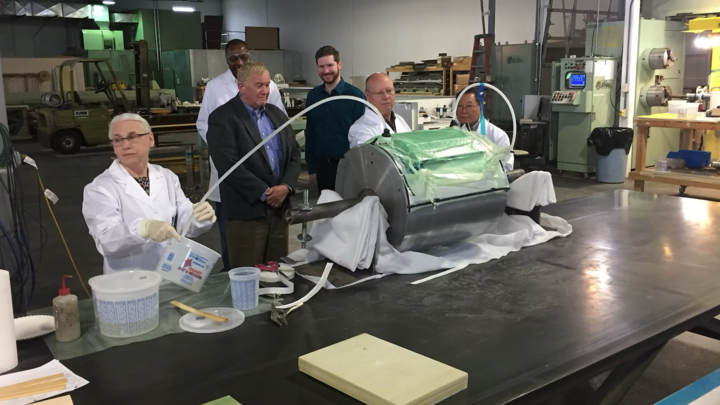2020
''We were aware of the Nebraska MEP’s positive reputation across the state and they delivered by providing expertise through the University of Nebraska’s College of Engineering to help us reduce our waste and keep our operation efficient so we could continue to thrive."
Shaun Guimond, Process Engineer
McCain Foods Reaps Waste Reduction Benefits
McCain Foods’ facility in Grand Island, Nebraska is a large-scale food processing plant, employing approximately 400 employees specializing in the production of onion rings and other appetizers. The plant produces approximately 400,000 pounds of onion rings per day. Other appetizer products produced by McCain Foods include fried pickle chips, fried green beans, French toast sticks, and fried cream-corn nuggets.
The Challenge
Under the guidance of the plant manager and his staff, McCain Foods’ on-going continuous improvement initiatives addressed raw material process losses with the goal over the summer of 2018 to reduce the amount of onion waste leaving the facility, while also increasing the total volume of packaged product.
MEP's Role
The Nebraska MEP, part of the MEP National Network™, and the College of Engineering at the University of Nebraska-Lincoln placed two student engineering interns at the plant over the course of the summer to work with McCain Foods personnel. Through program methods outlined in the college’s Partners In Pollution Prevention (P3) program, a new master rate (in the number of onions per minute) for the production line(s) was determined. Methods involving correlations between the bulb count (the number of onions in 50 pounds) and the number of onion slabs per minute, led to increased production and less waste.
Results

| $800,000 in retained sales through process modifications |

| $350,000 in labor, materials and energy cost savings |

| $375,000 invested in new processes, equipment, information systems and workforce. |

| $80,000 in unnecessary investments avoided |

| 40 employee jobs retained |




